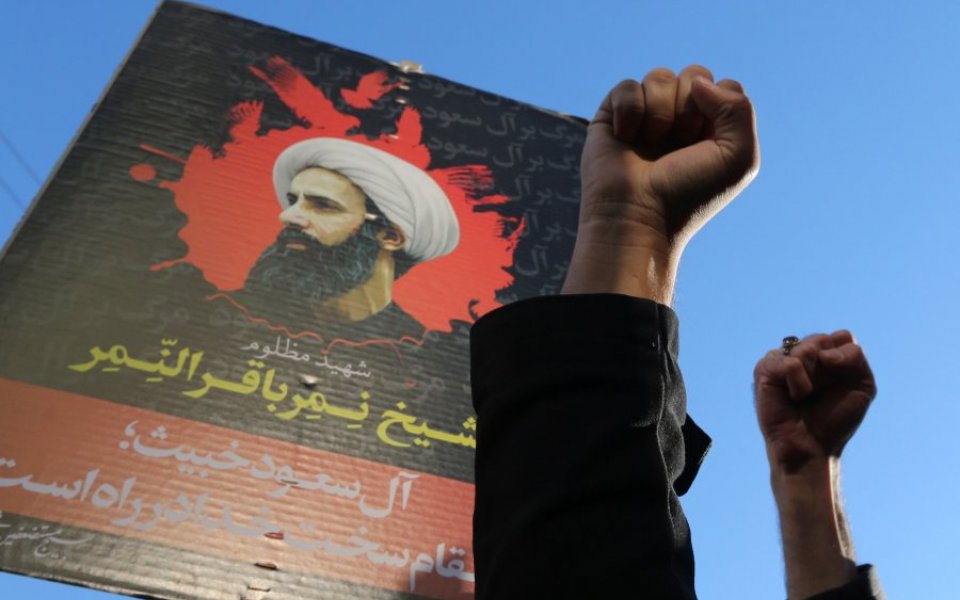Saudi-Iran schism: The West should cut its losses in the Middle East

The most annoying intellectual pathology of the western foreign policy elite must be its singular insistence that action, however mindless, beats informed inaction; that doing more is always better than doing less.
I saw this intellectual disease time and again in the aftermath of the utterly disastrous Iraq War. Smart opinion was divided between those who thought – all facts to the contrary – the war was going well overall and those who thought it was going horribly wrong.
However, the curious thing was that the policy responses of these polarised groups were exactly and depressingly the same. Those who thought the Iraq campaign was going well wanted the West to do more to secure mythical gains, while those who feared the post-war chaos was dangerous proposed exactly the same thing, in order to safeguard the fragile military victory over Saddam.
I could count on one hand those analysts – and I am proud to say I was one of them – who let facts guide them to the heretical conclusion that maybe limiting western exposure to an unwinnable morass was an infinitely better option.
All of which brings me to the latest, devastating, political rupture between Saudi Arabia, the champion of majority Sunni Islam, and Iran, the minority Shia standard bearer. I can scarcely think of a better example crying out for a policy of the West doing far less in the Middle East, cutting our strategic losses over unfixable problems.
Western elites must accept the inevitable: the Middle East, both in terms of western interests and the inability of its strategic problems to be solved, is nowhere near worth the effort the West has invested in the region over the past couple of decades. Doing less, through a new strategic policy of offshore balancing, is doing better.
The policy reasons for this – growing out of the past few weeks’ Sunni-Shia rupture – are legion, even if they will be entirely ignored by the vast majority of smart western foreign policy opinion. The disastrous Saudi decision to execute sheikh Nimr al-Nimr – the Shia spokesman for his discriminated minority in the country’s oil-rich Eastern Province – predictably led to Iranian rage, expressed by hardliners in Tehran torching the Saudi embassy in their usual overreaction. This in turn led the newly-affronted Saudis to break off all diplomatic ties with their Gulf rivals.
What Riyadh truly did not like about al-Nimr, a rare apostle of non-violence in a region that could use far more such exotic birds, was that he called for the secession of Eastern Province from the Saudi state. If such a thing were ever to happen, Saudi Arabia would cease to exist. So brittle is the kingdom, and so fearful are those around the new monarch King Salman, that to even mention such a possibility was a threat they felt they could not live with. Behind this melodrama lurks the greater structural problem that countries in the region simply lack the political legitimacy that makes for stability, the real reason the Middle East has been dealt its latest devastating diplomatic setback.
For the Saudis and the Iranians sit on opposite sides of almost every major strategic problem in the region; if their opposing interests can be broadly brought into line, then these myriad flash-points stand a real chance of being resolved. However, the corollary, which is the central point western policy-makers simply cannot stomach, also holds true. A failure of the two sides to even agree to engage in diplomatic interactions means these problems stand absolutely no chance in the world of being resolved.
Be the issue Syria, Yemen, Iraq, or Isis, this rupture definitively signals that, into the medium term, the problems of the Middle East simply will not be politically mastered. As such, a lesser western offshore balancing policy – maintaining our present course in Iraq, not committing to further military involvement in Syria, and in general leaving the regional powers to sort out their own problems or not (with “not” being most likely) – makes eminent sense, as the West pivots to a region of the world, Asia, where more is at stake and we have far better cards to play.
Sometimes the grown-up policy answer is simply “no”. Before believing the next member of the foreign policy elite who predictably demands yet greater action in the thankless Middle East, simply ask yourself if the analyst in question has ever, ever called for a more restrained policy at any point in their careers.
I think we both know what the answer will be.